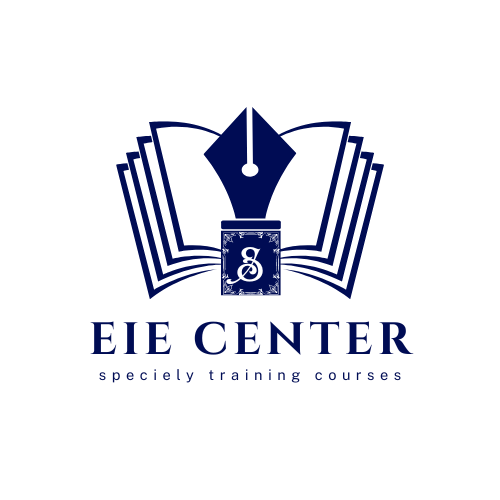Basics of Contract Law Course with Smart Contracting

About Course
Every day, significant monies are made and lost by organizations as a result of the contractual terms and conditions governing contracts for purchasing goods, equipment, and services. Since contractual relationships govern all business activities, it is increasingly important for all those dealing with outside organizations to understand contract law in-depth, including the nuances and implications of smart contracting.
This comprehensive contract law course with smart contracting offers valuable insights into contract law for non-lawyers and prepares participants to approach various contract scenarios with confidence and expertise.
The contract law course with smart contracting will delve deeply into how contracts are created and explore some of the main clauses commonly appearing in contracts. Additionally, participants will examine many alternative contracting strategies and structures relevant to today’s dynamic business environment.
The basic contract law course with smart contracting will then cover techniques employed in negotiating contracts, focusing on negotiating contract variations and effectively managing claims.
Smart Contracting in Contract Law
Smart contracts represent a revolutionizing force in the field of contract law, offering unprecedented efficiency and security in the execution of contractual agreements.
Within this contract law course with smart contracting, participants will explore the fundamentals of smart contract technology and its applications through practical scenarios.
By understanding the intersection of smart contracts with traditional contracting methods, participants in the contract law course with smart contracting gain a futuristic perspective on contract negotiation, drafting, and execution, equipping them with the knowledge to be at the forefront of contract management advancements.
Course Objectives
At the end of this contract law course with smart contracting, the participants will be equipped to:
- Provide a comprehensive understanding of how contracts are formed and operate.
- Offer a detailed analysis of the complex issues associated with major contract clauses.
- Foster an improved appreciation of the legal intricacies in contracts.
- Expand the understanding of diverse contracting strategies and structures, referring to smart contract developer roles.
- Cultivate new competencies in the negotiation of contracts and resolution of disputes.
- Broaden knowledge of how and why disputes emerge, focusing on smart contracts.
- Learn strategic methods to transfer risk through varying contract types.
- Clarify how to leverage contract provisions to minimize the risk of disputes and ensure amicable contracting practices.
Targeted Competencies
- Negotiating skills and techniques, including smart contracting considerations.
- Development of contract strategies and structures reaching beyond traditional methods.
- Deep understanding of contract law issues.
- Expertise in analyzing and drafting contract clauses, catering to diverse contracting needs.
- Resolution of claims and disputes leveraging smart contract technology.
- Risk Analysis with an emphasis on contract negotiation risks.
- Commercial awareness of pricing, performance issues, and contract management dynamics.
Course Content
Unit 1: How Contracts Are Formed:
- The critical reasons for using contracts in today’s digital and traditional business environments.
- Basic principles in contract formation, with a lens on smart contract applications.
- Examples of formalities for contract formation that span various industries.
- The use of written or oral contracts and the increasing role of smart contracts.
- Authority to sign a contract, including implications of decentralized decision-making in smart contracts.
- Basic and advanced contractual structures, including smart contract templates.
- Use of different types of contracts for varied business models and the introduction of smart contract technology.
Unit 2: Main Contract Provisions and Associated Issues:
- Scope of work and its definition within contract law and smart contracts.
- Addressing force majeure in a rapidly changing marketplace.
- How do you maneuver in volatile market conditions with contractual agility?
- Ensuring clarity in delivery and acceptance of terms to prevent misunderstandings.
- Termination and suspension protocols to protect parties’ interests.
- Warranty considerations and how they translate into smart contract stipulations.
- Selecting the appropriate law to govern the contract, including jurisdictions where smart contracts are legally recognized.
- The importance of the entire agreement clause in maintaining contract integrity.
Unit 3: Changes and Variations:
- The importance of adaptability to changes to the contract, including through smart contracts.
- Addressing scope variations effectively with well-crafted variation clauses.
- Use of variations clauses and their role in maintaining a structured yet flexible contracting framework.
- Methods for evaluating scope changes and ensuring fair adjustments are made.
- Extensions of time and how they are negotiated and documented.
- Responding to disruption in a manner that minimizes overall impact on the contracting parties.
- Manage changes in sequence and timing to reduce conflicts and misunderstandings.
- Controlling and managing change proactively within the context of dynamic contract negotiations.
Unit 4: Contractual Documents and Payment Issues:
- The significance of Letters of Intent and Award in pre-contractual negotiations.
- The role of Bonds in ensuring contractual performance and mitigating risk.
- Navigating Progress Payments and providing fair and timely compensation for services rendered.
- Understanding Parent Company Guarantees as a tool for risk management.
- Utilizing commercial standard documents to streamline contracting processes.
- How contracts end: exploring mechanisms for suspension, termination, and natural conclusion of contractual relationships.
- An exploration of the damages recognized in contract law and the calculation methodologies employed.
Unit 5: Dispute Resolution:
- Strategies for avoiding disputes through clear and robust contract drafting.
- Recognizing disputes when they arise and implementing strategies to address them swiftly.
- The use of contract clauses to encourage negotiation before escalating conflicts.
- The significance of third-party dispute resolution mechanisms, including courts and arbitration.
- Alternative methods include mediation and how they can be incorporated into smart contracting solutions.
- Post review and analysis to extract and apply key learnings to future contracts.
